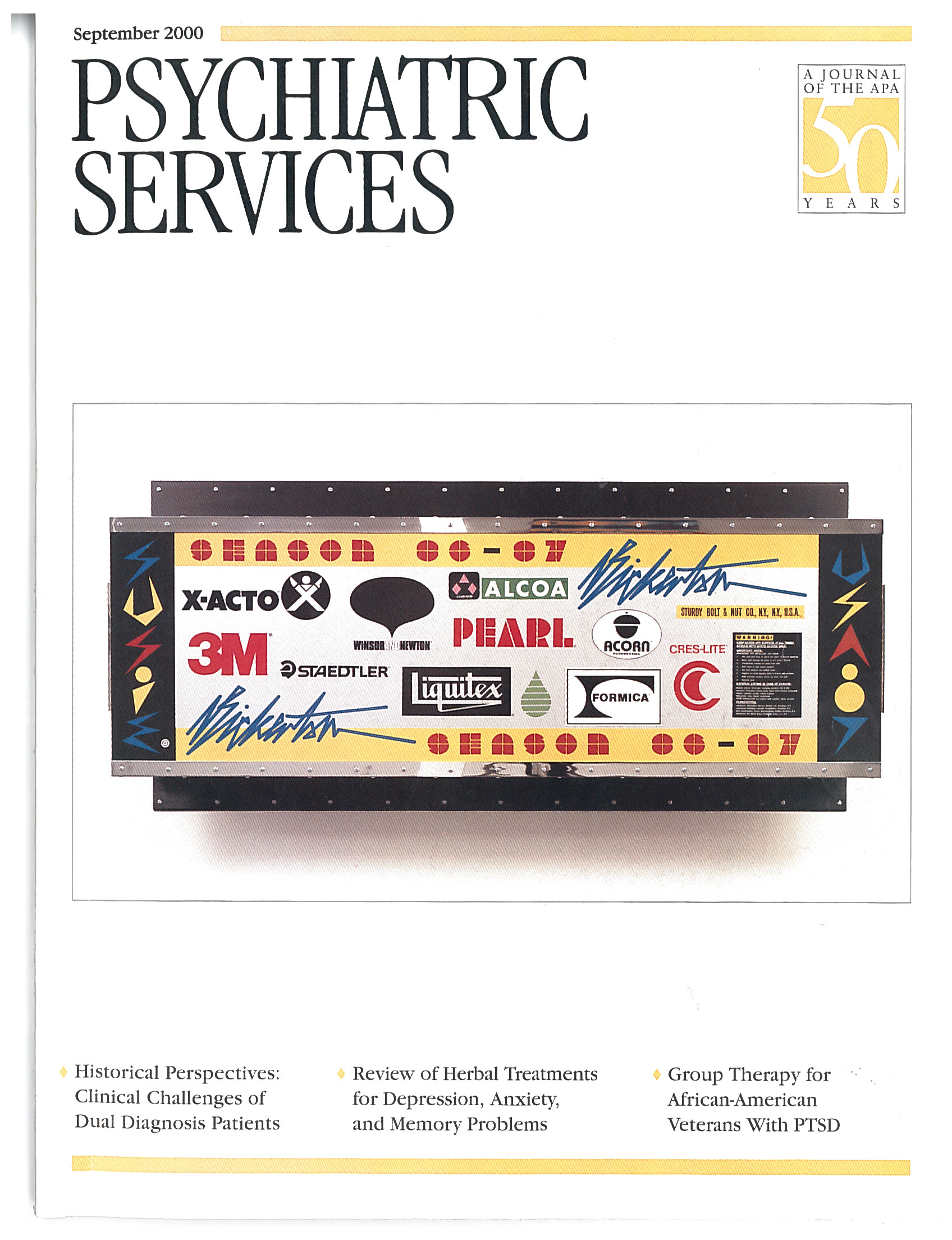•The Clinical Challenges of Dual Diagnosis Patients
In the 1980s clinicians were becoming increasingly aware of the clinical challenges presented by patients with both a mental illness and a substance use disorder. With deinstitutionalization, large numbers of patients who formerly would have been institutionalized were living in the community and had relatively easy access to alcohol and drugs. In this month's issue we continue to examine important developments in psychiatry over the past 50 years by reprinting an article from the October 1989 issue on assessment and classification of patients with psychiatric and substance use disorders, written by Anthony F. Lehman, M.D., and his colleagues (see page 1119). In a commentary, Robert E. Drake, M.D., Ph.D., and Michael A. Wallach, Ph.D., discuss how an understanding of dual diagnosis has developed over the past ten years, along with a growing recognition of the links between substance use disorders and poor outcomes for patients with chronic mental illness (see page 1126)…. In the Taking Issue column, Max Schneier, J.D., says that appropriate treatment depends not on subgrouping of dual diagnosis patients but on careful assessment leading to individualized clinical and psychosocial interventions (see page 1079).
•A Review of Herbal Treatments
Herbal preparations are a $4 billion industry, and preparations for the prevention and treatment of psychiatric disorders is its most rapidly growing segment. Gabrielle Beaubrun, M.B.B.S., and Gregory E. Gray, M.D., Ph.D., review research on herbs commonly used for psychiatric symptoms—St. John's wort, kava, ginkgo biloba, and valerian. Some studies have found these herbal treatments superior to placebo in treating symptoms of depression and anxiety and improving cognitive function and sleep. However, the authors conclude that because of the paucity of controlled trials and the lack of standardization of preparations, it would be premature for psychiatrists to recommend herbal remedies over established conventional treatments (see page 1130).
•Gender and Inpatient Violence
Inpatient staff may be less vigilant about and less responsive to escalating aggression by female patients, believing that females are less likely to be assaultive than their male counterparts. Judy N. Lam, Ph.D., and associates examined medical charts on a locked ward over a ten-year period and identified 76 patients who injured staff members. Nearly half of the injuries were caused by female patients, and the proportions of injuries caused by male and female patients were similar to the proportions of males and females hospitalized during that period. The authors conclude that signs of an elevated risk of violence by female patients should not be discounted by inpatient staff (see page 1167).
•Homeless Persons' Quality of Life
Studies indicate that about one in four homeless persons has a serious mental illness. Because many persons with a mental disorder receive disability payments as well as assistance from outreach programs, their quality of life may be better than that of other homeless persons. Greer Sullivan, M.D., M.S.P.H., and her colleagues explored this possibility by comparing data for more than 1,500 homeless persons. Those with mental illness were much more likely than those without mental illness to receive disability benefits or Medicaid. However, their quality of life was worse in terms of physical health, unmet subsistence needs, and victimization (see page 1135).
•The Case Management Alliance and Homelessness
In another study of homelessness, Matthew J. Chinman, Ph.D., and associates examined whether homeless persons who developed a working alliance with their case manager had better outcomes than those who did not. Using data for nearly 2,800 clients in the ACCESS program who completed baseline and 12-month interviews, they found that clients who had an alliance with their case manager spent significantly fewer days homeless and reported greater general life satisfaction than those who did not form such a relationship (see page 1142).
Briefly Noted …
•In 1991 California decentralized its state mental health system, a move that gave more flexibility to local governments to provide services. For the first time, the severely mentally ill population was specified as the target population. Amy Zhang, Ph.D., and her colleagues evaluated data from before and after this realignment and determined that the most severely mentally ill persons have received the highest priority for services (see page 1103).
•The Emergency Psychiatry column examines the effectiveness of critical incident stress management, an approach to crisis intervention that provides support for people who have experienced traumatic events such as mass disasters or who have been injured or witnessed death in the line of duty (see page 1095).

